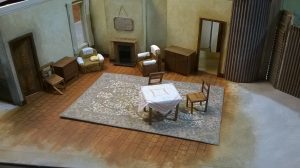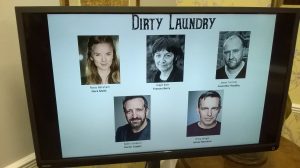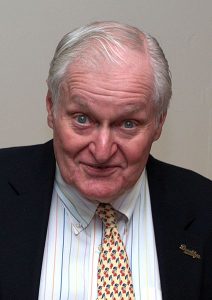Claybody theatre launched their new site-specific production this week. Dirty Laundry will be performed in the evocative China Hall at the Spode Factory in Stoke from October 11 to 21. The play, according to its creator, Deborah McAndrew (winner of the UK Theatre Award, best new play for An August Bank Holiday Lark), explores the effects of the industrial environment through the inter-generational tensions in a typical 1950s working class home. Rueben Moth is dying, and a secret hovers just beyond the grasp of his daughter, Nora.
The set, designed by Dawn Allsopp, will sit in the cavernous industrial space, and convey a sense of pot-war austerity and gloom.
At the launch, Conrad Nelson (director) introduced the professional cast and explained how the audience will be transported back to the 50s by local amateur actors, before entering the auditorium through the set itself, in a gesture that brings the audience into a much closer relationship with the drama than in a conventional theatre space. Some performances will be followed by panel discussions involving academics, theatre folk, and local people.
Many thanks to everyone at Claybody for an enjoyable evening at the Spode visitors centre. We’re really looking forward to bringing a group of students to a performance.
Click here to visit Claybody’s website and find out more.



